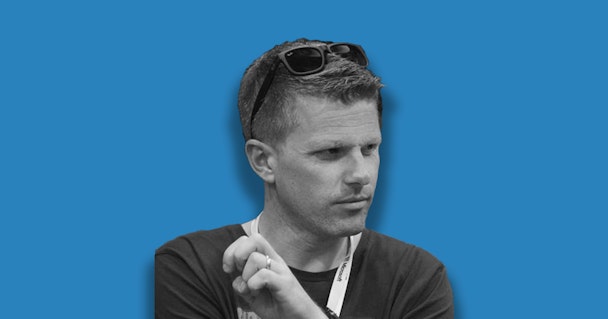Mindshare CMO warns on the dangers of being ‘siloed into media’ upon rebrand
Greg Brooks, chief marketing officer at media agency Mindshare, explains how the media agency’s renewed the way it approaches the market and the importance of a holistic client offering.

Mindshare's CMO explains how the media agency stays front of mind for clients
The current boom in digital client spend would suggest that times are good in the media business. But the last two years have put pressure on agency businesses across the board to sell themselves more effectively to potential clients and potential recruits.
At media agency Mindshare, chief marketing officer Greg Brooks has been grappling with this recently. The agency has deployed a company-wide rebrand and is contemplating the eventual return to conference floors and trade shows as its looks to court clients more efficiently – motivated primarily by changes in what clients want from their media partners.
“The nature of what our clients are asking us for has changed. It was changing before Covid came along and the digital acceleration that we’ve seen with that... the pandemic shone a light on whether you had an effective digital strategy or not.
“You need to now offer a set of products and services which are beyond media and also not siloed into media.“
Brooks says the agency is now as concerned with e-commerce channels and maintaining the "digital maturity" of its clients’ systems as much as it is with media planning. “As a result, you need to come and repackage your offering.“
Refreshing the agency’s look ended up on the agenda following a raft of changes at the media agency – from the appointment of new global chief exec Adam Gerhart to the development of a new market proposition.
“We’ve had quite a lot of change over the last 18 months or so. But the one thing that we haven’t evolved throughout all of that was actually our brand identity and how we go to market – we hadn’t really done anything on that for about 12 years,“ he explains.
“The actual nuts and bolts of the identity wasn't working... 12 years is a long time in communication and an eternity in digital communication.“ The agency’s long review of its look led to a “system approach“ rather than a new logo. “It’s not just a stamp on the back of the book,“ he says. “It’s a much more flexible, much more simple and much more active brand approach than what we had before.“
He says the makeover was a hit with Mindshare’s 10,000 staff – and more importantly, with its clients, who reached out personally to praise the work. “Clients reached out directly to our global CEO saying how fantastic it was, what it mean for them and how they could have conversations about pushing forward.“
Making your own fun
Traditional ways of meeting new clients, or shoring up existing accounts, such as a visible presence at key industry events, have been put on hold.
“What Cannes or CES brings is a large volume of clients in one place. It was incredibly efficient – you could have like nine face-to-face meetings in a week with your global clients that would have taken you nine weeks to fly around the world and see them all.“
Zoom meetings, Brooks notes, don’t quite measure up to the Riviera.
Although Cannes is ostensibly for the industry’s creative side, Brooks recalls Mindshare helped to gouge out a niche for media agencies to join in the fun and get noticed.
“Media kind of flit in and out. I was part of the team that put together the Festival of Media, because [media] was not being treated with respect at the time. Then Cannes paid more attention and media got involved again.“
Many agencies are reconsidering their presence at industry events, instead prioritising in-house conferences. As festivals and trade shows struggle to restart, more agencies might well look to gouge their own spaces out.
Integrated pitches
With travel previously a considerable perk for job-hunting agency heads, Brooks also working to make sure Mindshare is an attractive career destination. “There’s obviously a squeeze on, and the game is try make sure you are doing everything you can to be as attractive as an employer, and as supportive as an employer, as you could possibly be.“
In the long-term, though, he says the agency must have an offering ready for the “other side“ of Covid. For Brooks, Mindshare’s new digs at WPP's new London campus, where it will bed in with other media agencies, are a prime example. The aim is to make working life more efficient, rather than necessarily more fun. “This will actually end at some point,“ he says. “And when that happens, what will the world of agency life be like?“
It’s not just the absence of industry events or the need to bring in more staff. Pitching for new work has changed too, with networks and holding companies building their offers to brands around bundled offers.
“Most of the requests now coming in from large advertisers aren’t going to Mindshare or Starcom, they’re going to WPP or IPG... because the solutions that are required are integrated products and services. The solution doesn’t sit within one agency anymore.“
While that arrangement might suit the client, pitching as part of a wider team does carry the risk that your agency might fade into the background. Brooks recalls the importance of being known as an expert: “You’re still bringing with you the specialist skills and knowledge of your particular areas.“
“Ultimately, we’re a services business across WPP. What we’re trying to do is find the best way to grow our client's business and our job is to put that together for them, irrespective of the skills or where they're from.“

